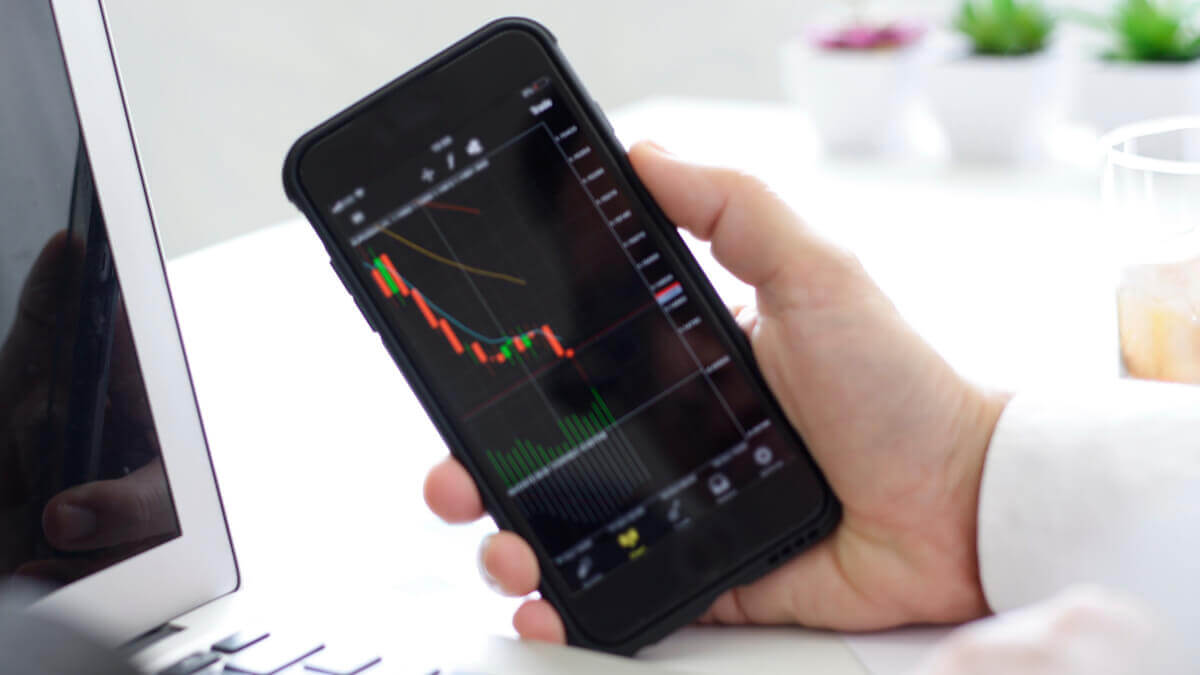How to buy FIFA World Cup 26™ tickets: Step-by-step guide
Guide on how to buy world cup tickets 2026: official sales, signup tips & tricks, resale safety, and key dates to secure seats.

Looking at Robinhood vs Webull, you’ll notice a lot of similarities. Both online brokerages offer a variety of investments, including stocks, options, ETFs, IRAs and more. And buying and selling these assets is commission-free.
They’re both solid investment platforms with one key difference. On Robinhood, you’ll find a basic interface geared towards any and everyone who wants to invest. And with Webull, you’ll see more advanced trading features that cater to intermediate and advanced level traders.
In this article, we explore the fees and features of both platforms, so you can make an informed decision on which platform fits your needs.
And when you’re ready, you can fund your brokerage account and set up recurring payments with a free Wise account. With Wise, you can withdraw your earnings from your brokers and convert and hold balances in over 54+ currencies. Plus, you'll save up to 6x when sending money abroad.
| 📝 Table of contents |
|---|
In the table below, you get a clearer picture of the fee structures between Webull and Robinhood. Overall, they’re similar in that they keep most of their services free and only charge regulatory fees.
But depending on your trading experience, the best choice for you could swing either way. Remember that on the platform, Webull offers more comprehensive research tools geared towards experienced traders. It’s up to you to decide what level you’re at and what you’re willing to risk.
| Webull¹ | Robinhood² | |
|---|---|---|
| Account fees | $0 - No maintenance, opening, inactivity, or closing fees, but there’s a $75 fee for transferring an account to another brokerage. | $0 - No maintenance, opening or closing fees, but there is a $75 fee to transfer out an account. |
| Minimum deposit | $0 | $0 |
| Stock trading fees | $0 - commission $0.0000051 x Total $ Trade amount (Min $0.01) - Regulatory fee on sells $0.000119 x total trade volume (Min $0.01 - Max $5.95) - FINRA regulatory fee | $0 - commission $5.10 per $1,000,000 of principal (sells only), rounded up to the nearest penny - Regulatory fee $0.000119 per share. The Fee is rounded up to the nearest penny and cannot surpass $5.95 - Regulatory trading activity fee |
| Options trading fees | $0 - commission $0.002 x No. of contracts (Min $0.01) - Activity fee on sells $0.0000051 x Total $ Trade amount (Min $0.01) - Regulatory on sells $0.02135 x No. of contracts - Regulatory fee on buys and sells $0.02 x No. of contracts (Max $55 per Trade) - Clearing fee on buys and sells | $0 - commission $5.10 per $1,000,000 of principal (sells only), rounded up to the nearest penny - Regulatory fee $0.002 per contract (options sells). The fee is rounded up to the nearest penny and is never higher than $5.95 - Regulatory trading activity fee |
| Investment offerings | ETFs, Options, Stocks, ADRs, IRAs | ETFs, Options, Stocks, ADRs, fractional shares |
| Mobile app | Tons of advanced features including: price alerts, paper trading, and many charts and indicators. | Has advanced features including live earnings calls and news feed, alerts, and various charts. |
| Desktop platform | Offers a lot of customization and screeners plus advanced charts and indicators. | Very simple but has customizable order buttons, the ability to take actions directly from charts, and lots of widgets. |
| Research & education | Analysis, research, and financial news from Reuters, OTC Bulletin Board, Nasdaq Totalview, and OPRA—free quotes in real-time with one option trade per month. | Financial news from top providers—WSJ, CNBC, Reuters. You get access to Morningstar and other advanced data with a Robinhood Gold Membership. |
| Customer support | Phone and email support available 24/7, and chat is available through the mobile app. | 24/7 email and social media support, and you can request a service call from inside the app. |
| Promotion | 2 free stocks. One for opening a brokerage account, and another for making a direct deposit. | 1 free random stock share when you link your bank account. |
| 💡 Interested in checking out other Robinhood competitors? Read our article about more Robinhood alternatives here. |
|---|

In the tables below, you’ll find a breakdown of the fee schedules for both Webull and Robinhood.
Basic trading on Webull or Robinhood is completely commission free—it’s the key reason people started trading with them. Both companies also offer no minimum deposits, account minimums, or account maintenance fees—though you’ll have to pay $75 to transfer your account out.¹ ²
But there are other unavoidable regulatory fees charged by the Securities and Exchange Commission (SEC) and Financial Industry Regulatory Authority (FINRA). They pass these fees down to the customer.
- Robinhood - $5.10 per $1,000,000 of principal (sells only).
- Webull - $0.0000051 x Total $ Trade Amount (Minimum $0.01).
Robinhood and Webull both charge $0.000119 per share—equity sells/stock and ETF—and $0.002 per contract (options sells). FINRA doesn’t charge over $5.95 per execution for this fee, so neither do they.
Webull also has two additional regulatory fees related to buying and selling options. The first is an options regulatory fee from the Options Exchange at $0.02135 x Number of Contracts. The second is a fee from the Options Clearing Corporation at $0.02 x Number of Contracts—maxed at $55 per trade¹.
Webull and Robinhood do not offer mutual funds or futures. Also, both companies do not have financial advisors for broker assisted trades, so fees are not applicable here either.
| Webull¹ | Robinhood² | |
|---|---|---|
| Stocks | $0 - Commission | $0 - Commission |
| ETFs | $0 - Commission | $0 - Commission |
| Options | $0 - Commission | $0 - Commission |
| Futures | Not Available | Not Available |
| Mutual funds | Not Available | Not Available |
| Broker assisted trades | Not Available | Not Available |

Webull has a more complex fee structure with margin account rates. Whereas, Robinhood offers a flat 2.50% across the board. Also, to trade on margin at Robinhood, you must pay $5 per month for the Robinhood Gold service.² This also grants you access to their advanced research tools.
| Webull¹ | Robinhood² | |
|---|---|---|
| $0 - $25k | 6.99% | 2.50% |
| $25k - $100k | 6.49% | 2.50% |
| $100k - 250k | 5.99% | 2.50% |
| $250k - $500k | 5.49% | 2.50% |
| $500k - $1 million | 4.99% | 2.50% |
| $1 million - 3 million | 4.49% | 2.50% |
| >$3 million | 3.99% | 2.50% |
Webull doesn’t charge to transfer your account from another brokerage, and the service currently isn’t available for Robinhood. But you’ll have a $75 charge on both trading platforms to transfer your account out to another brokerage.¹ ²
| Webull¹ | Robinhood² | |
|---|---|---|
| Transfer from another broker | $0 | Not Available |
| Transfer to another broker (ACATS) | $75 | $75 |
One of the key differences between Robinhood and Webull is in their withdrawal and deposit fees.
Neither company charges fees for ACH deposits or withdrawals. But Webull has charges ranging from $8 up to $45 for domestic and international wire transfers¹.
| Webull¹ | Robinhood² | |
|---|---|---|
| ACH | Deposit - $0 Withdrawal - $0 | Deposit - $0 Withdrawal - $0 |
| Wire transfer (domestic) | Deposit - $8 Withdrawal - $25 | Deposit - $0 Withdrawal - $0 |
| Wire transfer (international) | Deposit - $12.50 Withdrawal - $45 | Deposit - $0 Withdrawal - $0 |
| 💡 Funding and withdrawing funds from your account doesn’t need to be costly. Neither company has fees for ACH transfers. It’s possible to transfer money from your account to a Wise account for free, and then get the lowest possible rate on your wire transfer. Plus, you’ll pay the mid-market rate on any currency conversion. |
|---|

One of the things which make both Webull and Robinhood appealing is that they offer low fees and are easy to use.
The same goes for a free Wise account.
Get a Wise account for free and use it to fund your brokerage accounts, or withdraw your funds and convert them to any of 54 different currencies, all with the real mid-market exchange rate.
Wise (formerly TransferWise) offers the world’s most international account.
What are the benefits?
- Hold or convert 50+ currencies,
- Instant, super-cheap money transfer – save up to 6x.
- Order a card to spend in any currency,
- Bank details to get paid in 30 different countries,
- Multi-currency direct debits
And other revolutionary stuff. Come, see it yourself – and open a free account today.
Open a free Wise account today
With an overview and fees in mind, you can look at the pros and cons for Webull and Robinhood to help determine which one is right for your needs.
| Pros | Cons |
|---|---|
No minimum account balance Commission-free trading on stocks, ETFs, and options. Margin accounts available Real-time quotes are free | No automated, joint or savings accounts No fractional shares or mutual funds Educational features may be a bit limited |
Webull is an investment app with a lot of brokerage services available—all online. They offer IRAs, individual accounts, and margin accounts. If you’re not familiar, a margin account is where you borrow money from a brokerage to place a trade, and the brokerage charges an annual margin interest rate on the loan. Webull margin interest rates range from 3.99% to 6.99% based on your balance.¹
If you want extended market access with low fees, Webull can be a solid option. You’ll pay nothing in commissions for any stock, option, or ETF trades. They offer extended hours trading, so you can usually put in an order when you want. And Webull offers a $0 minimum deposit and balance on most accounts—you need $2,000 in your account to do margin trading.
Through Webull, you can invest in ETFs, stocks, options, and ADRs—foreign company shares. Again, there is no commission on the trades of these securities, but you’ll have to cover the costs charged to Webull by clearing firms and regulatory agencies.
For retirement, Webull has Roth, traditional, and rollover IRAs available. The only difference between retirement accounts and individual accounts is that retirement accounts limit your investments to ETFs and stocks.
Though Webull has Nasdaq-approved market data and real-time quotes, its overall educational resources are limited. It’s not really a platform for beginner investors. But if you’re someone with trading experience who doesn’t need investment training, Webull could be the right one for you.
Regardless, you’ll have access to customer support 24/7 and their mobile app on both Android and iOS.

| Pros | Cons |
|---|---|
Commission-free trading on options, stocks, and ETFs Margin accounts and fractional shares available Offers cash management accounts Great interface on the web platform and mobile application | No IRAs or joint accounts Limited educational and investment resources No ability to designate a beneficiary or set up transfer on death |
Robinhood also offers a wide range of financial products and services. They have cash management accounts, margin accounts, and individual brokerage accounts. And from these accounts, you can invest in stocks, ETFs, options, or ADRs.
Like Webull, Robinhood has no minimum deposit or balance requirements for individual brokerage accounts. But you will need a $1 balance to trade fractional shares.
Also, Robinhood Gold margin accounts require a $2,000 minimum balance and have a $5 per month fee. With Robinhood Gold, you also get access to higher quality research and market data. Every margin account has a 2.5% annual interest rate on the balance.²
Robinhood provides investment education resources in their virtual library. However, you won’t be able to access the advanced research and market insights information without a Robinhood Gold membership.
All-in-all, Robinhood can be great for active and day traders or margin traders who want to avoid commission fees. It’s another platform that—while a better fit for beginners—requires investors to have basic investment knowledge. There are no financial advisors available, and you’ll always have to monitor your investments.
That being the case, it’s good that Robinhood has a superb mobile app available on Android and iOS.

If you’re looking for differences between Webull and Robinhood, you’re going to have difficulty. The only key variables lie in their account types and features, margin interest rates, and level of investment research.
If you’re an advanced-level or active trader, Webull takes the advantage. The platform has Nasdaq market data, real-time quoting, extended hours trading, and customer support 24/7. Neither company has paper trading.
There’s a $2,000 minimum on margin accounts for Robinhood or Webull. But at 2.5% across the board, Robinhood’s annual margin rate comes out on top over Webull.² You’ll need to pay $5 per month for a Robinhood Gold membership to get a margin account. But that also gives you access to additional research and ups your instant deposit amount to $50,000.
Last, Webull offers IRAs, and Robinhood doesn’t. But Robinhood offers cash management accounts, and Webull doesn’t.
If you’re looking for retirement options, Webull could be the better fit. But if you’re looking for cash management options with an APY on your uninvested cash, Robinhood could be the better choice.
Whichever you choose, you can fund your brokerage account and set up recurring payments with a free Wise account. And when you’ve withdrawn your earnings from your brokers, you can convert and hold balances in 54+ currencies. Plus, you always save up to 6x when you send money abroad.
Webull doesn’t have hidden fees. The regulatory fees they charge are the same as any other brokerage.
Yes, there are some fees.
You’ll have to pay regulatory fees from FINRA and the SEC when you make a trade. Webull also has margin interest rates on margin accounts based on the balance, and there are fees for incoming and outgoing wire transfers and outgoing portfolio transfers.
There’s no deposit fee for an ACH deposit, but they charge $8 for domestic wire transfer deposits and $12.50 for international¹.
Webull has zero commissions on trades, so they don’t take a percentage. You only pay the regulatory fees.
| 💡 It’s important to note before making any decision regarding investments that there is always a risk. Before you invest on any platform, review their terms and conditions. If you’re unsure of anything or are not experienced enough with investing and finance, seek the advice of a licensed financial professional. |
|---|
All sources checked on 15 November 2021
*Please see terms of use and product availability for your region or visit Wise fees and pricing for the most up to date pricing and fee information.
This publication is provided for general information purposes and does not constitute legal, tax or other professional advice from Wise Payments Limited or its subsidiaries and its affiliates, and it is not intended as a substitute for obtaining advice from a financial advisor or any other professional.
We make no representations, warranties or guarantees, whether expressed or implied, that the content in the publication is accurate, complete or up to date.

Guide on how to buy world cup tickets 2026: official sales, signup tips & tricks, resale safety, and key dates to secure seats.

Interested in Remitly Flex? Find out everything you need to know, including key features, costs, and limits.

Read on for everything you need to know about sending and receiving international wire transfers with Abound.

Receiving a large international wire transfer in the US? Here's a guide on the fees, time, and what you should give to your sender overseas.

Read on for everything you need to know about sending and receiving international transfers with GCash.

Read on for everything you need to know about sending and receiving international wire transfers with Remit2Any.